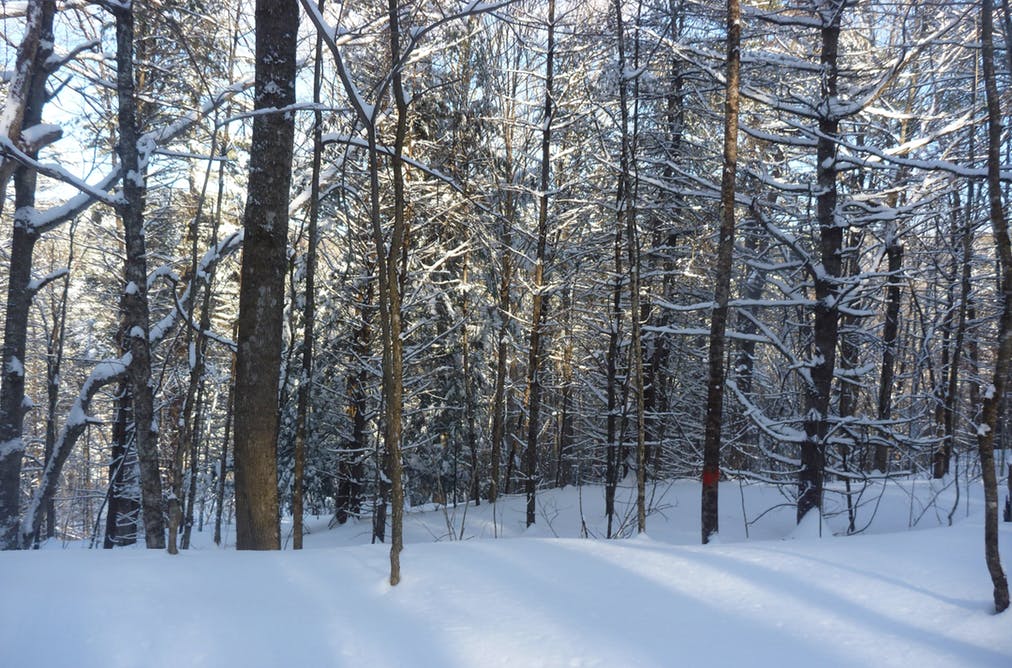
Climate change often conjures up images of heat, drought and hurricanes. But according to the latest U.S. National Climate Assessment, released on Nov. 23, 2018, winters have warmed three times faster than summers in the Northeast in recent years. These changes are also producing significant effects.
Historically, over 50 percent of the northern hemisphere has had snow cover in winter. Now warmer temperatures are reducing the depth and duration of winter snow cover. Many people assume that winter is a dormant time for organisms in cold climates, but decades of research now show that winter climate conditions – particularly snowpack – are important regulators of the health of forest ecosystems and organisms that live in them.
In particular, our work over the last decade shows that declining snow cover may impair tree health and reduce forests’ ability to filter air and water. Our latest study finds that continued winter warming could greatly reduce snow cover across the northeastern United States, causing large declines in tree growth and forest carbon storage.